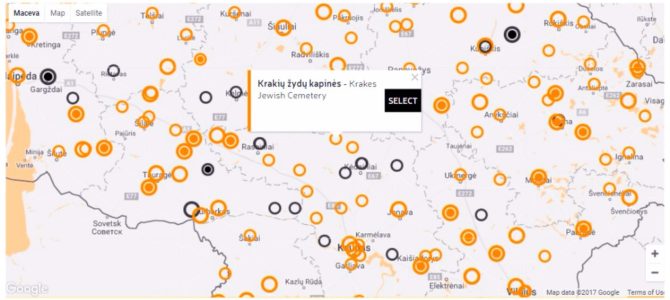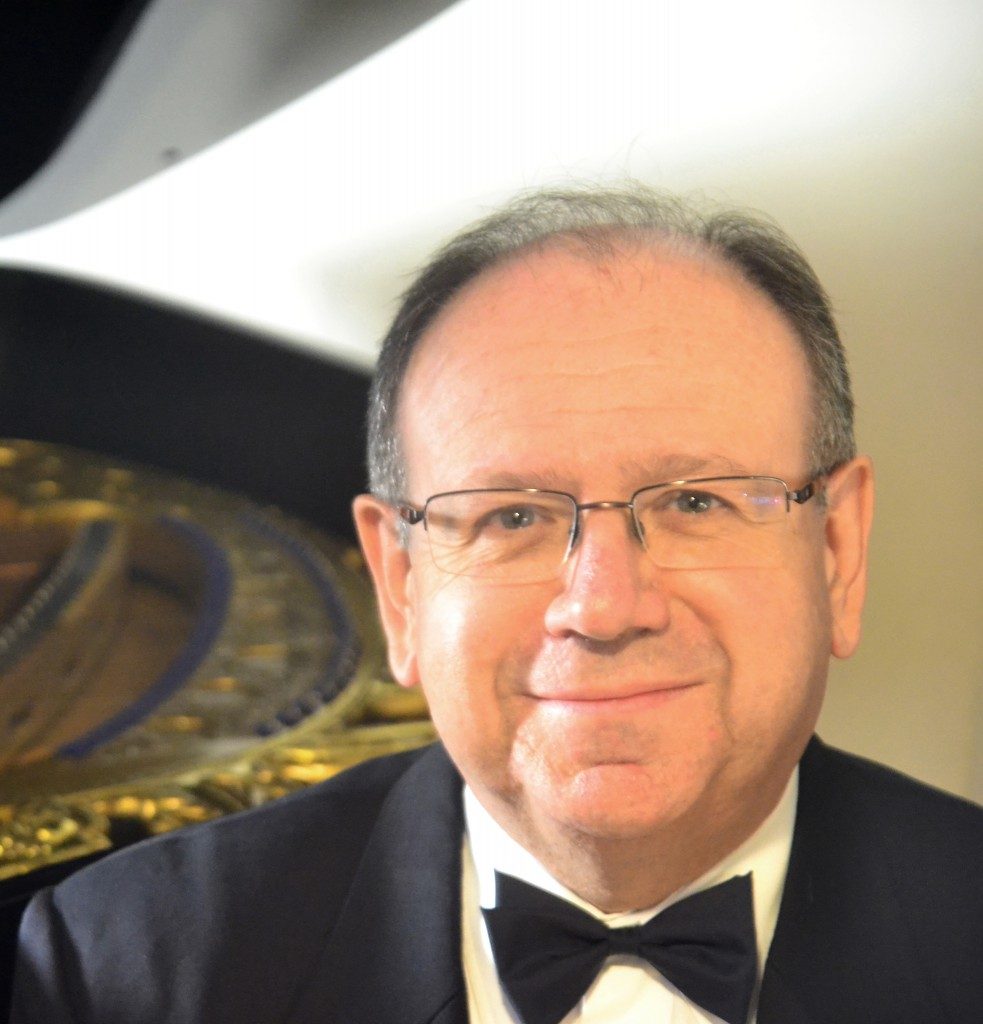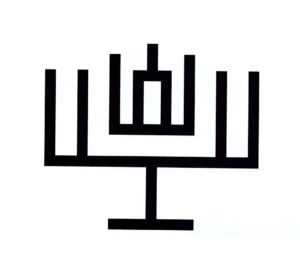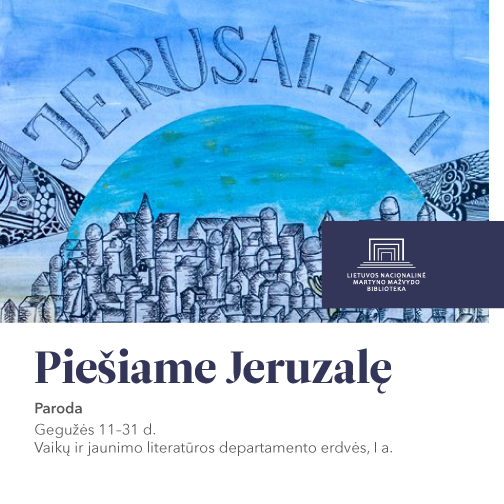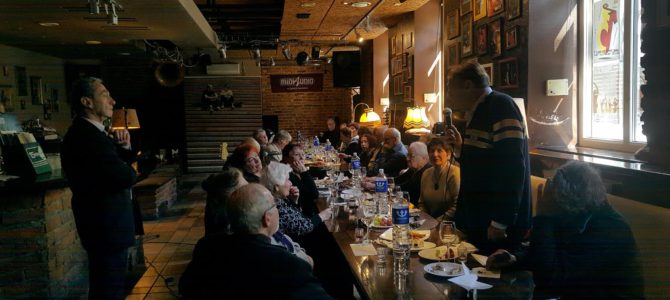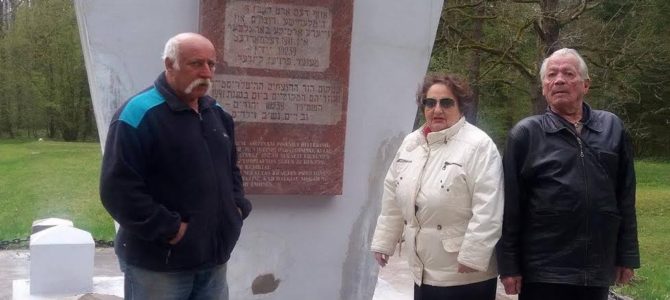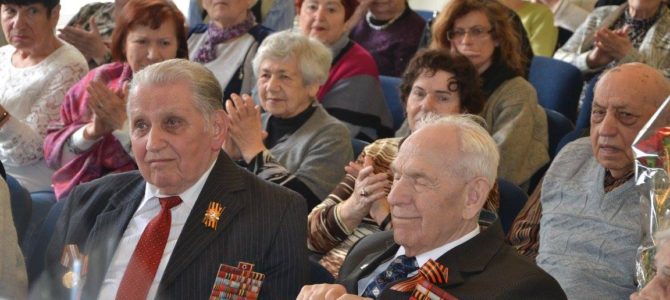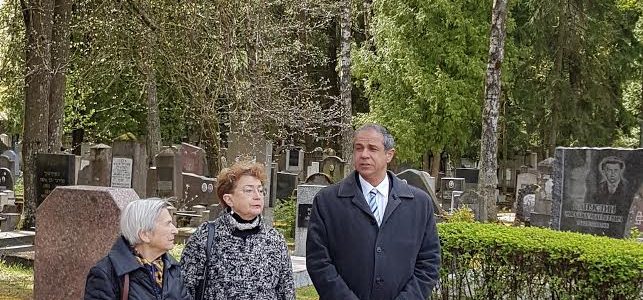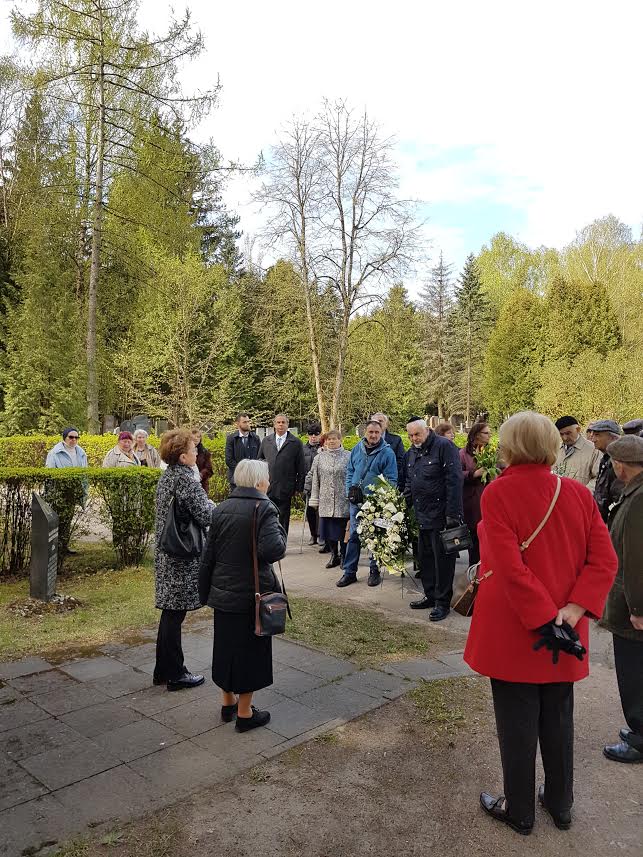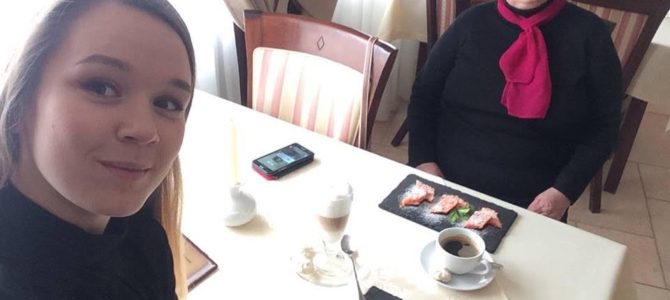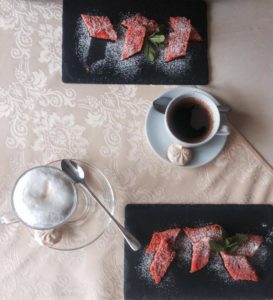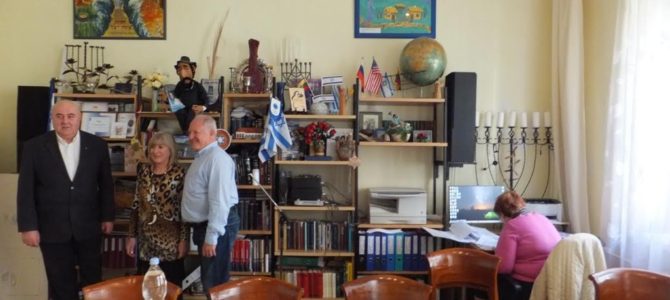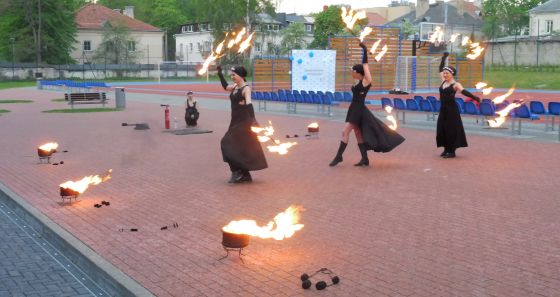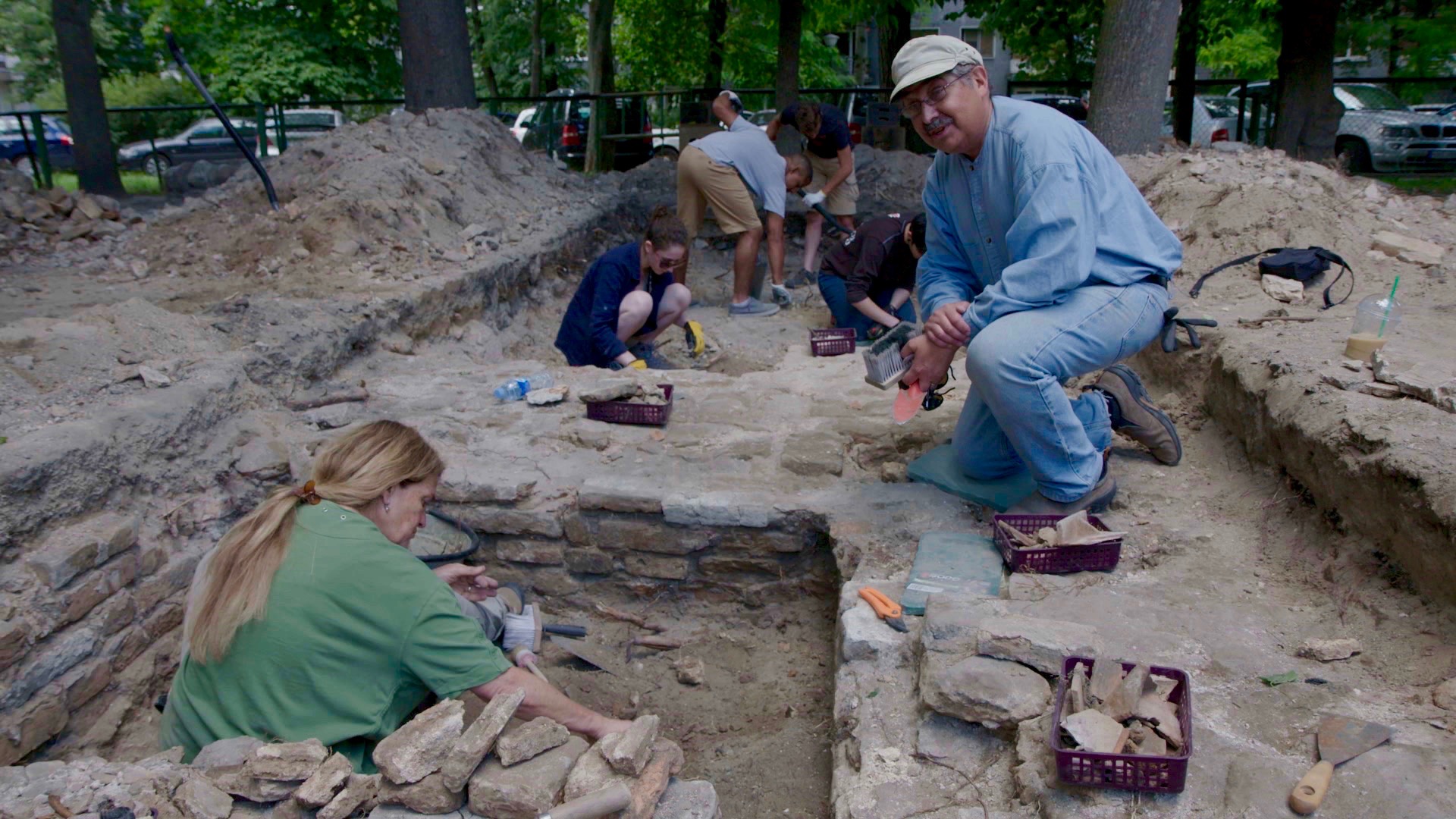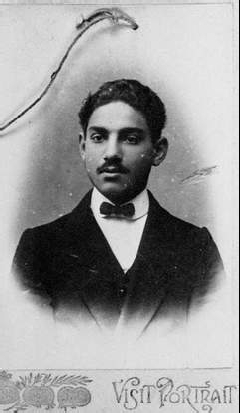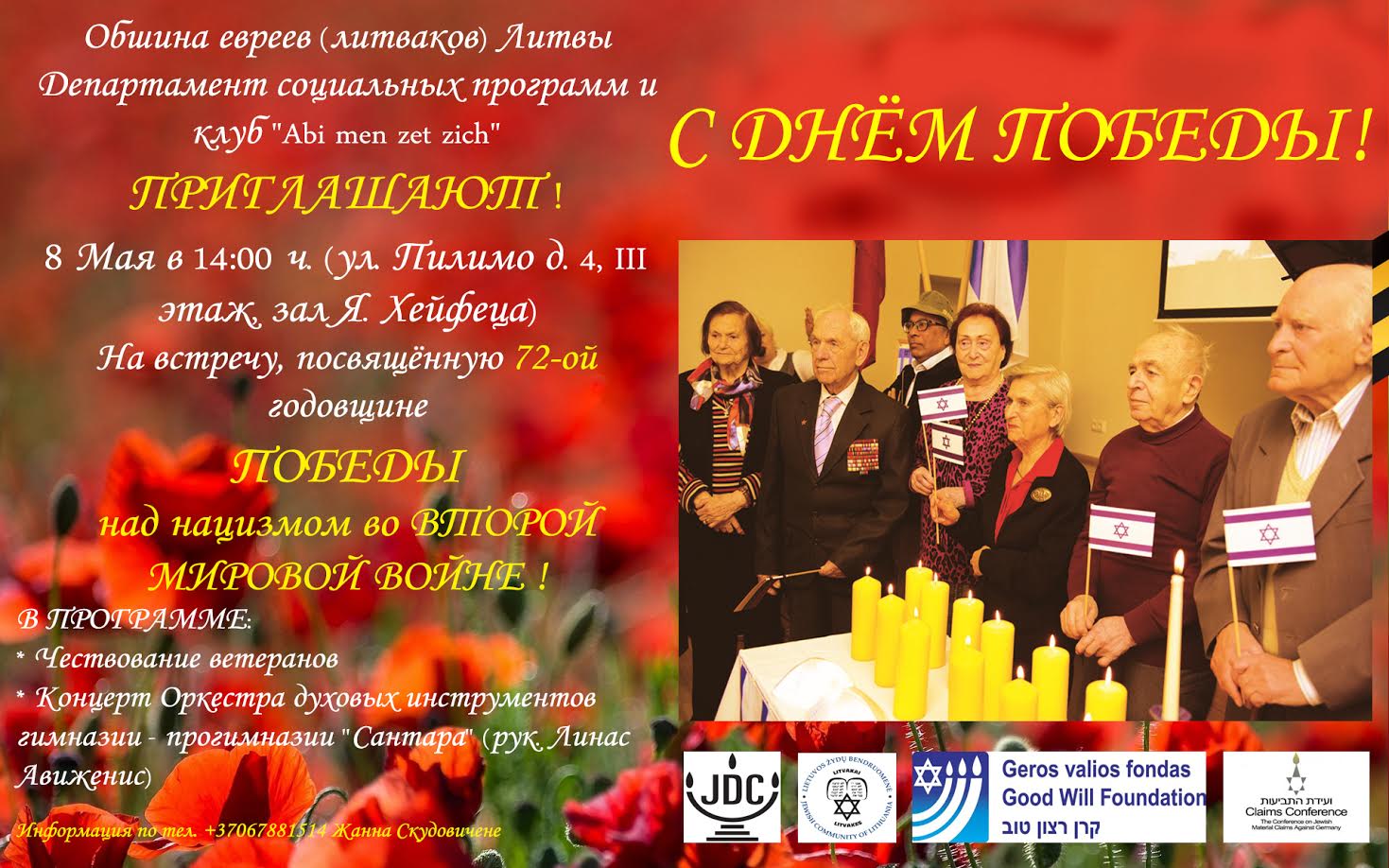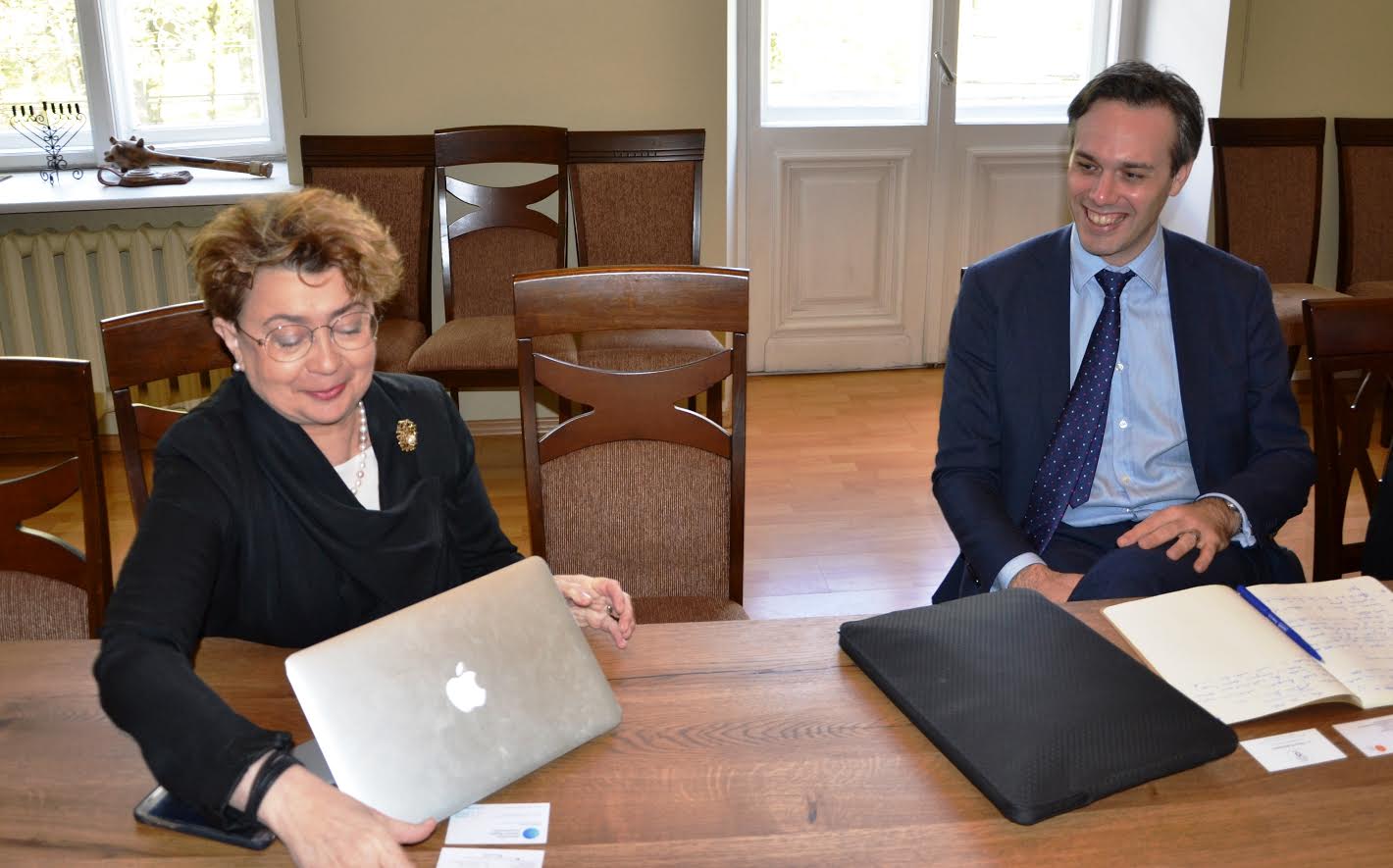
Australian human rights commissioner of the Australian Human Rights Commission Edward Santow met with representatives of the Lithuanian Coalition of Human Rights Organizations at the Lithuanian Jewish Community May 11.
Santow is visiting Lithuania to learn more about NGOs operating in the field of human rights in Lithuania and about violations of human rights in the country. The visit to Lithuania and other partner states is part of Australia’s bid for a seat on the UN Human Rights Council.
At the LJC meeting Santow said he was the first Jewish Australian human rights commissioner and expressed delight at how active the LJC is. He stressed the importance of inter-institutional cooperation in carrying out projects in human rights protection and advocacy and hailed the LJC’s latest project, “Drafting and Publicizing Recommendations for Combating Anti-Semitism and Romophobia in Lithuania,” with financing from EVZ in Germany.


